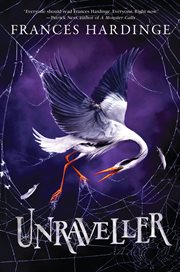Review by New York Times Review
MY LAI: Vietnam, 1968, and the Descent Into Darkness, by Howard Jones. (Oxford, $34.95.) This book about the famous massacre of Vietnamese villagers by American soldiers may be difficult to read - but it is essential for understanding our recent history, and should become the standard reference on the subject. DRAFT NO. 4: On the Writing Process, by John McPhee. (Farrar, Straus & Giroux, $25.) Eight essays, originally published in The New Yorker, offer writing advice from the master prose stylist who is perhaps the most revered narrative journalist of our time, letting readers behind the scenes of his creative process. BIRDCAGE WALK, by Helen Dunmore. (Atlantic Monthly, $26.) In her radiantly charged final novel, Dunmore (who died of cancer in June) imagines the turbulent life of an 18th-century British woman, a political activist at the time of the French Revolution, and the effect her radicalism has on her daughter's troubled marriage to an imposing real estate developer. KISS ME SOMEONE, by Karen Shepard. (Tin House, $19.95.) A sharp-edged short story collection that vividly demonstrates how a woman can be another woman's worst enemy. "They'd always walked the line between teasing and cruelty," Shepard writes of four bridesmaids, nominally friends, in one story. A MOONLESS, STARLESS SKY: Ordinary Women and Men Fighting Extremism in Africa, by Alexis Okeowo. (Hachette, $26.) A Nigerian-American journalist profiles ordinary Africans living in defiance of the continent's extremist movements, dramatically at times but more often through simple daily endurance. AFTER THE FALL, by Dan Santat. (Roaring Brook, $17.99; ages 4 to 8.) What if Humpty Dumpty (here decked out in jeans and a skinny tie) decided to pull himself together and get back up on that wall? Santat's picture book explores that premise in a delightful tribute to resiliency and facing fears, with a stellar surprise ending. THE STARS BENEATH OUR FEET, by David Barclay Moore. (Knopf, $16.99; ages 8 to 12.) In this debut novel celebrating community and the power of imagination, a 12-year-old boy in the Harlem projects, still grieving his brother's recent death, finds answers to his life's questions by competing to build cities with Lego. TUMBLE & BLUE, by Cassie Beasley. (Dial, $17.99; ages 8 to 12.) A generations-old family curse and a mystical swamp-dwelling alligator are at the center of Beasley's second fantasy novel, featuring a warmhearted exploration of fate. GOOD NIGHT, PLANET, by Liniers. (TOON Books, $12.95; ages 4 to 8.) The latest picture book from the Argentine cartoonist Liniers is a lively tale of a stuffed rabbit who, once his little girl falls asleep, promptly heads out for an adventure of his own. The full reviews of these and other recent books are on the web: nytimes.com/books
Copyright (c) The New York Times Company [November 26, 2017]
Review by Booklist Review
*Starred Review* Many years ago the Montgomery family was involved in the fracturing of a great fate, which has passed through subsequent generations as either an incredible talent or curse. Unfortunately, Blue Montgomery was dealt the fate of always losing, and being left with Grandma Eve for the summer in minuscule Murky Branch, Georgia, feels like his greatest loss yet. Meanwhile, Tumble Wilson Lily's self-chosen hero name is also put out by her family's recent move to Murky Branch, but she's determined to make the best of it by helping Blue break his curse, like a true hero would. As the Montgomery clan descends upon Grandma Eve's in preparation for the blood-red moon a once-in-a-lifetime chance to change their fate Blue and Tumble forge a tight friendship and come to a deeper understanding of themselves. Beasley (Circus Mirandus, 2015) wisely reins in the colorful Montgomerys, ensuring that the story stays firmly focused on Blue's and Tumble's personal journeys. Their adventure into the nearby Okefenokee Swamp is lightly brushed with folkloric fantasy, and while there, choice emerges as a powerful theme. Reminiscent of Ingrid Law's Savvy books, Beasley's sophomore novel is a spirited yarn that shines through its rich characters, evocative writing, and enchanted premise. This will effortlessly ensnare the reader who plucks it from the shelf.--Smith, Julia Copyright 2017 Booklist
From Booklist, Copyright (c) American Library Association. Used with permission.
Review by Publisher's Weekly Review
For generations, members of the Montgomery family have received supernatural "fates" that rule their lives; some are wonderful, such as a powerful affinity for animals, while others are not, such as one's husbands always dying. Blue Montgomery fits into the latter category: his fate is that he is cursed to always lose, no matter the situation. After his father leaves him at his grandmother's house in Murky Branch, Ga., for the summer, Blue is determined to break the curse, even if it means venturing into the Okefenokee Swamp to find a fabled golden alligator named Munch. Eleven-year-old Tumble Wilson, new to Murky Branch and obsessed with being a hero, is immediately drawn to Blue and his bad luck, and she makes it her mission to help him. In their quest to alter Blue's fate, he and Tumble learn that their families are inextricably linked, and that the line between a gift and a curse is easily blurred. Interludes from the wise and intimidating Munch keep the supernatural aspects of the novel at the forefront of readers' minds, while Tumble and Blue muddle through issues of abandonment, failure, grief, and loss. Blue's extended family, many of whom have also traveled to Murky Branch for a chance to change their own fates, creates a vibrant ensemble. Granny Eve is particularly noteworthy; her dedication to her family leaves a lasting mark on Blue, whose father is distracted at best and absent at worst. A tender message about sacrifice-for loved ones and the greater good-underlies this magical story of fate and family. Ages 8-12. Agent: Elena Giovinazzo, Pippin Properties. (Aug.) © Copyright PWxyz, LLC. All rights reserved.
(c) Copyright PWxyz, LLC. All rights reserved
Review by School Library Journal Review
Gr 4-6-An immersive, supernatural middle grade adventure. Hear the whispers of long-kept family secrets in shadowed corners. Feel the humidity of a languid Georgia summer. Beasley, author of Circus Mirandus, weaves the tale of two tweens spending the summer looking for the way out of an ancestral curse. In 1817, 12-year-old Blue Montgomery's forebear Walcott (a fugitive horse thief) and Tumble Wilson's ancestor Almira (a "murderous young bride") were forced-by violence-to split the mysterious gift of changing one's fate, which they obtained from the fabled golden gator, deep in the Okefenokee Swamp at the rising of a bloodred moon. Both sought to escape the consequences of their crimes, but legend says that the golden gator's gift is meant for only one. "Those are the rules, and they can be terribly sharp when broken." Ever after, subsequent generations in both families were struck indiscriminately with either good or bad luck. A chance to fight the gator for his gift comes only once every 100 years when the moon runs red. Now, as the time draws near again two centuries later, Tumble and Blue must reverse the curse if there's to be any hope of normal lives for them both. Beasley's shimmering prose pulls readers in, line by line, like a fish dragging on a hook through swampy waters. The lush setting and lustrous portrayal of the characters will captivate even the most reluctant reader. VERDICT Middle graders will delight in the richly drawn world and history that Beasley creates. A first purchase for most collections.-Chelsea Woods, New Brunswick Free Public Library, NJ © Copyright 2017. Library Journals LLC, a wholly owned subsidiary of Media Source, Inc. No redistribution permitted.
(c) Copyright Library Journals LLC, a wholly owned subsidiary of Media Source, Inc. No redistribution permitted.
Review by Horn Book Review
Way back when, there were strange things done in the Okefenokee Swamp. A plot was set in motion by two bad people, horse thief Walcott Montgomery and murderer Almira LaFayette. Their descendants, especially a couple of middle graders, Blue and Tumble, are doomed to play out the end of this tale of curses, courage, trickery, family feuds, and alligators. Blue, abandoned by his father, ends up at the home of his grandmother. His fate is that he seems destined to be a loser for life since hes unable to win any fight or game or contest--not even tic-tac-toe. Tumble, a girl who feels responsible for the death of her brother, is determined to live by the precepts of a self-help book called How to Hero Every Day. They join forces to solve the puzzle of the past and neutralize the curse. In a mix of tall tale, magic realism, comic midgrade mayhem, and sweetness--a mix reminiscent of Sachars Holes (rev. 9/98)--Beasley creates a distinctive, energetic world in which kindness is a muscular value and quirkiness is organic to the setting. The onomatopoeic language is a treat. Running on a dirt road: thuff thuff. Folding up a sofa bed: poppa-poppa-clang-thwooong. And who could resist a book in which the word Okefenokee makes regular appearances? sarah ellis (c) Copyright 2017. The Horn Book, Inc., a wholly owned subsidiary of Media Source, Inc. No redistribution permitted.
(c) Copyright The Horn Book, Inc., a wholly owned subsidiary of Media Source, Inc. No redistribution permitted.
Review by Kirkus Book Review
Two friends, both seemingly cursed, join forces to alter their destinies. Blue Montgomery, a 12-year-old white boy, has a lifelong history of losing at everything he tries. It runs in the family: half the Montgomerys suffer some sort of curse. When Blue's father unexpectedly abandons him in Murky Branch, Georgia, to stay with Granny Eve, Blue's devastated. Then Tumble Wilson, also 12 and white but a girl, moves to town. Harboring a secret and obsessed with her hero, Maximal Star, and his book, How to Hero Every Day, Tumble rescues people with disastrous results. When Tumble learns about Blue's losing curse, she tries to prove he can be a winner even as he staunchly defends her hero status. As the 100-year red moon appears and every cursed Montgomery hopes to be the one who, according to family legend, will "travel into the swamp and claim a great new fate" from an alligator named Munch, Blue and Tumble bravely head into the swamp to change everything. Oozing magical realism, the plot alternates between pessimistic Blue and optimistic Tumble with occasional dark humor from Munch. With their assorted curses, Blue's highly eccentric family members add local color and diversion. Black-and-white spot art reinforces the swamp setting. An original, highly engaging story about the power of friendship, family curses and blessingsand what it means to be a hero. (Magical realism. 8-12) Copyright Kirkus Reviews, used with permission.
Copyright (c) Kirkus Reviews, used with permission.


